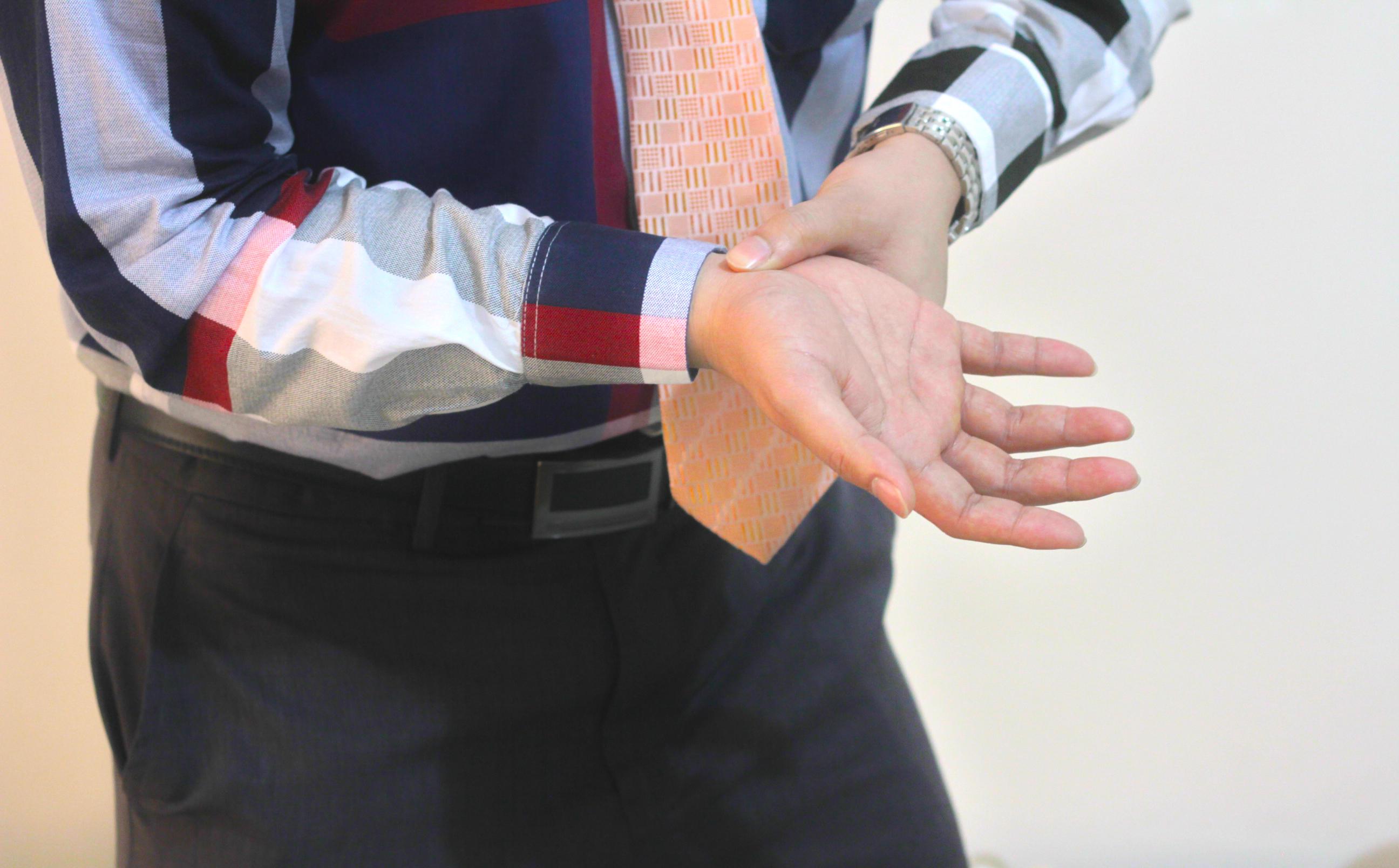Carpal tunnel syndrome happens when the median nerve in the wrist is pinched or restricted. This is a very common syndrome and is treatable by a physician. Carpal tunnel can be caused by a genetic predisposition or through repetitive motions such as data entry, assembly line work, or even things like sewing or cutting hair. This condition is three times more likely to develop in women than in men.
Symptoms reported can include things like tingling or itching in the palm of the hand, being awoken at night with hand pain, numbness, weakness, “pins-and-needles” sensations, stiffness and inability to grab with your fingers. Over time this syndrome can worsen, so it is important to start working with a physician as soon as you begin to notice symptoms.
In many cases patients can avoid surgery. Treatments will start with rest. In cases where repetitive motions are causing the pain, the patient will need to rest to ensure the symptoms do not worsen. Ice and cold packs can help to bring down inflammation in the wrist, which allows the body to begin healing.
Medications such as a non-steroidal anti-inflammatory drugs like Advil are great ways to reduce swelling and help curb the pain. Medicated injections may also be a good idea to continue aid in healing.
Other treatments may include acupuncture, which will help the reduce long terms pain. Physical therapy is another great option for carpal tunnel syndrome. A physical therapist will evaluate your pain and provide you with a list of stretches or exercises specific to your condition. They can help strengthen the muscles and reduce pain.
For some cases surgery may be needed. It’s best to find a physician that specializes in hand and arm surgery.
Preventing further development is important when dealing with any chronic pain. If this injury is due to a repetitive motion at your work place, you should consider finding equipment that does cause this repetitive motion anymore, or even switch to another position. Daily stretching of your hands and wrist is a great way to keep your pain at bay. Find stretches that work for you and make sure you don’t cause additional pain.
If you want to be evaluated or treated for chronic pain due to carpal tunnel syndrome, contact our office at 770-421-1420 or lowbackpain.com for more information!

